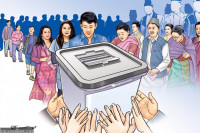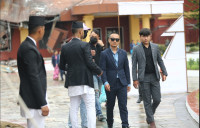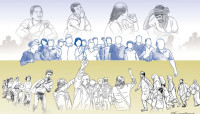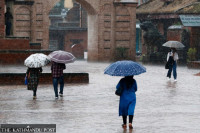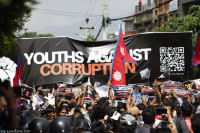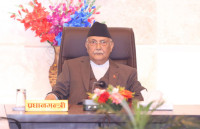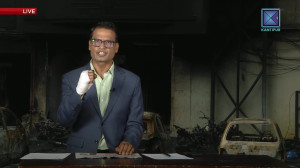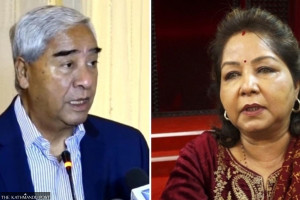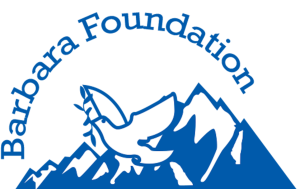Opinion
Break the barriers
Without unity among political parties, Nepal cannot solve the problems created by conflict and by the quake
Santosh Pariyar
After April 25, Nepal has been gripped by the post-quake crisis. For decades, both national and international experts had been talking about the potential dangers of a big earthquake. Finally, 81 years after the big tremor in struck the country in 1934, the 7.9 magnitude tremor catapulted the country into massive destruction and, within seconds, destroyed properties worth millions and killed thousands of people.
Same old politics
One of the most intriguing aspect of this natural disaster is the political ramifications that have emerged post-disaster. The tremor hit the country while it was still stuck in the project of conflict transformation and constitution-making. Sadly, the post-conflict power politics based on revenge, leader-captured democracy and poor governance became more apparent in the aftermath of the disaster, thwarting the people’s expectations.
Now, the question in everyone’s mind is whether a politically polarised and socially fractured Nepal can cope with the situations and pave way for the future that its citizens expect?
United people
But while the government and political leadership might have disappointed the masses, the post-quake philanthropic trend has brought to the fore the unity that exists among the people of this country regardless of politics, ideology, caste, creed and economy. Since long, the people residing in this part of the world have faced numerous challenges. And they have responded to them with much courage, fortitude and unity. Especially, the Nepali youth have proved this time around that they are all above the segregations that we are making up.
It has been more than two months since Nepal was hit by the quake. So far, the government has not been able to move beyond the relief phase. It will have to start
rehabilitating the quake-affected people and rebuilding the country as soon as
possible.
If the political leadership takes this national tragedy as an opportunity, then they have the best chance to rebuild the country and fulfill their long-overdue promise of turning Nepal into a developed nation. After the quake, Nepalis seems united once again. People are also expecting joint enterprises from political parties and they believe that no political party should be left out from the rebuilding process. After all, politics should bring people together for the sake of national interest and it is high time to correct fractional politics that has been in existence since long.
Politicians, unite
The need for unity among political outfits is also necessary because in the disaster’s aftermath, it has become clear that no single political party is in a position to adequately address the challenges that we are facing. Our increasingly interconnected post-quake reality needs new forms of national cooperation that transcend ideological borders and narrowly-defined political mandates. At the same time, post-quake governance must become more democratic and transparent. For all of this to happen, Nepal needs a strong national government whose objective should be post-conflict management and post-quake management.
This will also help assuage the fear of corruption among donors. We have to understand that this anxiety is a result of the endemic corruption in the country. Demonstrating our strong determination to stand united and manage the post-crisis scenario will help us assuage their doubts.
Apart from post-crisis aid transparency, we also need to introduce participatory development projects, democratic governance. But ensuring better governance and wider participation of the people also needs political resolve. Until the political class realises this, nation rebuilding will remain an elusive enterprise.
Pariyar is a faculty member at K and K International College




 15.32°C Kathmandu
15.32°C Kathmandu
